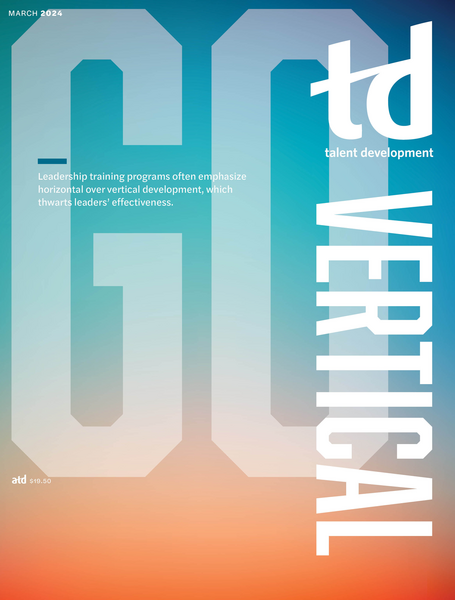TD Magazine Article
Feeling Left Behind
Millions of US workers over 50 believe they lack necessary skills.
Fri Mar 01 2024

Are workplace training opportunities biased? A majority of workers older than 50 think so, according to Multiverse's report, The Great Unretirement: Keeping Workers Over 50 in the Labor Market. To collate the data, researchers interviewed 3,015 workers aged between 50 and 65 across the US and the UK.
The respondents said that the formal education that benefited them at the beginning of their careers hasn't stood the test of time as the workplace has evolved. Sixty-four percent of those surveyed believe their formal education is not relevant or only slightly relevant to their jobs; another 27 percent think their education is completely irrelevant now.
Multiverse's research shows that 2.4 million workers in the US are considering leaving the workforce early because they feel unable to keep up with the skills demand in the current climate. Companies are training their employees for continuous digital transformation, but 57 percent of respondents said they believe employers are prioritizing younger workers over them—specifically in L&D training.
"As more individuals over the age of 50 trend toward early retirement, businesses and society lose out on significant knowledge and skills that contribute to the workforce," says Gary Eimerman, chief learning officer at Multiverse. "Our recent survey shows that despite this trend, there are opportunities to retain workers over the age of 50, and even tempt many back from retirement if employers are willing to provide training to help close critical skills gaps."
Retaining those employees has a simple solution: Offer them training and skills development opportunities. Forty-one percent of older workers who plan to leave their current jobs said they would stay if their organizations offered the opportunity to develop new skills to keep pace with technological trends.
Those opportunities, however, have not come. Half of respondents said they haven't taken part in any training for at least a year; of those people, 47 percent said their employers have not offered them any training.
"The rapid pace of technological change in the workforce has led to both increased skills gaps and an increase in employees over the age of 50 leaving the labor market," Eimerman explains. "To counteract this, employers and the government must commit to investing in the ongoing learning of all workers, not just those at the start of their careers."

